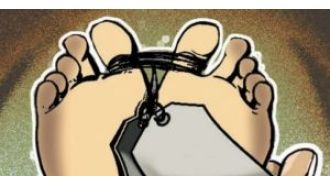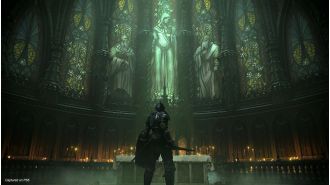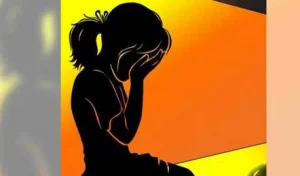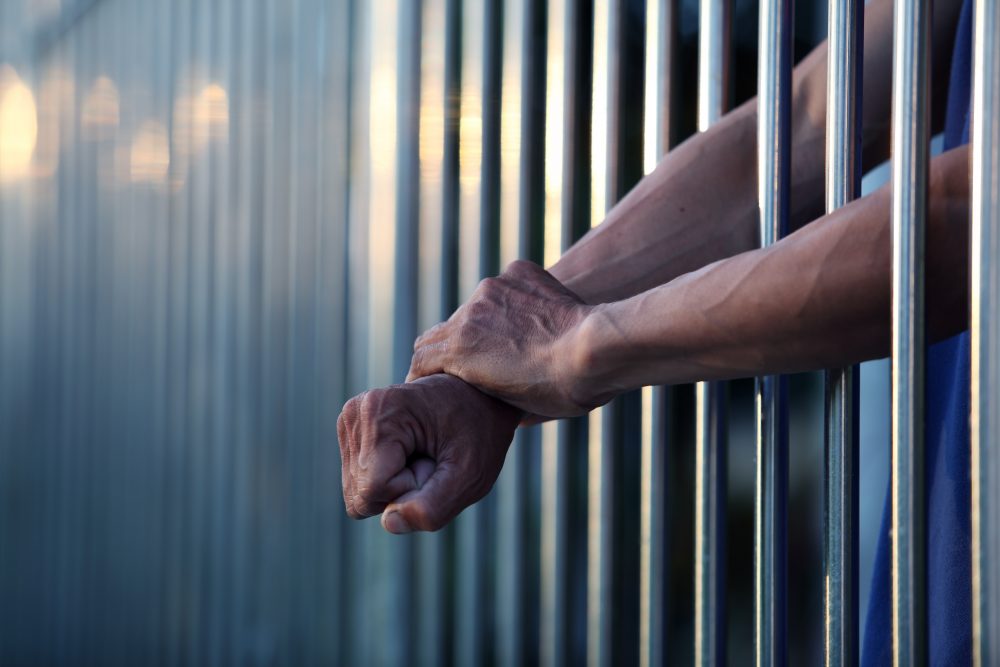Syrians rejoice and shoot in the air to mark the downfall of the Assad family's 50-year reign.
The presidential palace and residence were joyfully looted when President Bashar Assad and other leaders disappeared.

By Abdulrahman Shaheen and Abby Sewell | Associated Press
It was a day of both jubilation and uncertainty in Syria as news spread of the rebel forces' successful advance towards the capital, Damascus. After 50 years of iron rule by the Assad family, the streets were filled with celebratory gunfire and joyous crowds waving the Syrian revolutionary flag. It was a scene reminiscent of the early days of the Arab Spring, before the country was plunged into a brutal civil war.
Amidst the chaos, some took the opportunity to ransack the presidential palace and residence, which had been abandoned by President Bashar Assad and other top officials. Their whereabouts were unknown, but it was reported that Russia, a close ally, had helped negotiate their departure and the peaceful transfer of power. As the dust settled, the question on everyone's mind was who would lead the country now.
One of the most prominent figures to emerge was Abu Mohammed al-Golani, a former al-Qaida commander who had since denounced the group and embraced pluralism and religious tolerance. As the leader of the largest rebel faction, he was poised to shape the future of Syria. In his first public appearance since the rebels entered the suburbs of Damascus, al-Golani visited the Umayyad Mosque and declared Assad's fall as a victory for the Islamic nation. He even chose to use his given name, Ahmad al-Sharaa, instead of his nom de guerre, highlighting his desire for a more inclusive and united Syria.
But amidst the celebrations, there were also concerns about the daunting task ahead for the rebels. The country was ravaged by years of war and divided among various armed factions. Turkey-backed opposition fighters were still battling U.S.-allied Kurdish forces in the north, and the threat of the Islamic State group still loomed in some remote areas.
As the rebels announced a curfew in Damascus and freed prisoners from the notorious Saydnaya prison, there were also reassurances from rebel commanders that all religious and ethnic minorities would be included in the new Syria. Anas Salkhadi, another prominent rebel leader, appeared on state TV to reassure the Druze, Sunnis, Alawites, and all other sects that Syria belonged to everyone and that they would not repeat the same mistakes as the Assad family.
In the streets of Damascus, the celebrations continued as people prayed in mosques and gathered in squares, chanting anti-Assad slogans and honking car horns. Some even picked up weapons abandoned by security forces and fired them into the air in a show of triumph. But amidst the joy, there were also moments of reflection and worry as families searched for loved ones who had disappeared under Assad's regime.
As soldiers and police abandoned their posts and looters broke into government buildings, there were also calls for calm and unity. Syria's al-Watan newspaper, which had always been pro-government, acknowledged that this was a new chapter for the country and urged media workers not to be blamed for past government actions. Even the Alawite sect, which had been a core supporter of the Assad family, called for young Syrians to remain calm and not be divided by revenge.
But amidst the celebrations and calls for unity, one question remained unanswered - where was President Assad? His whereabouts were unknown as his prime minister, Mohammed Ghazi Jalali, announced that the government was ready to hand over its functions to a transitional government. A video circulating on Syrian opposition media showed the prime minister being escorted from his office to a hotel, a sign of the changing tides in Syria.
As the country looked towards the future, there was both hope and uncertainty. The rebels had achieved a significant victory, but the road ahead would not be easy. It would take time and effort to heal the deep wounds and divisions caused by years of war. But for now, the people of Syria could celebrate the end of an era and the start of a new chapter in their history.
On this eventful Sunday, the Syrian people took to the streets with jubilant hearts, their voices echoing with celebratory gunfire. The news of the rebel's astonishing advancement towards the capital, Damascus, had reached them, bringing an end to the 50-year-long tyrannical rule of the Assad family. However, amidst the celebrations, there were also questions about the future of the country and the wider region.
The joyful crowds gathered in the squares of Damascus, waving the Syrian revolutionary flag, reminiscent of the early days of the Arab Spring uprising. It was a sight that brought back memories of hope and unity, before a cruel crackdown and the rise of an insurgency plunged the country into a devastating 14-year-long civil war. Some amongst the crowds even dared to venture into the presidential palace and residence, seizing the opportunity to ransack the premises, as President Bashar Assad and other top officials had vanished, their whereabouts unknown.
In a surprising turn of events, Russia, a close ally, revealed that Assad had left the country after negotiations with rebel groups and had given instructions to transfer power peacefully. As the dust settled, it became clear that Abu Mohammed al-Golani, a former al-Qaida commander who had distanced himself from the group years ago and embraced pluralism and religious tolerance, was leading the biggest rebel faction and was poised to chart the country's future.
In his first public appearance since the rebels entered the Damascus suburbs on Saturday, al-Golani visited the Umayyad Mosque and declared Assad's fall as "a victory to the Islamic nation." He even used his given name, Ahmad al-Sharaa, instead of his nom de guerre, as he addressed the hundreds of people gathered there. He boldly stated that Assad had turned Syria into "a farm for Iran's greed," a statement that resonated with many.
But the rebels now face the daunting task of healing the deep divisions that have taken root in the country during the prolonged war. Turkey-backed opposition fighters continue to battle U.S.-allied Kurdish forces in the north, and the Islamic State group still poses a threat in some remote areas.
The rebels made a bold move by announcing that Assad had been overthrown and all prisoners had been released. They even called upon the people to preserve the institutions of the "free Syrian state." As a show of their power, they later declared a curfew in Damascus from 4 p.m. to 5 a.m. But amidst all the chaos, there were also heartwarming moments when videos circulated online, showing the rebels breaking open the doors of Saydnaya prison and freeing dozens of female prisoners, many of whom appeared shocked and relieved. One could even see a small child among them.
But for some, the happiness was yet to be complete. Bassam Masr, a relative of one of the prisoners, expressed his joy but also anxiously searched for his son who had been detained for 13 years. He said, "This happiness will not be complete until I can see my son out of prison and know where he is."
As the celebrations continued in the capital, with people praying in mosques and chanting anti-Assad slogans, some also voiced their concerns about possible revenge killings by the rebels. The rebels, on their part, sought to reassure the religious and ethnic minorities of Syria, with rebel commander Anas Salkhadi stating, "Syria is for everyone, no exceptions. Syria is for Druze, Sunnis, Alawites, and all sects. We will not deal with people the way the Assad family did."
The scenes in Damascus were a mixture of joy, chaos, and uncertainty. As the rebels took over various government buildings, some families were seen wandering the presidential palace, taking with them household items as souvenirs. A woman, Heba, expressed her gratitude towards the rebels, saying, "They have felt the pain of the people." However, as a mother, she also worried about the safety of her children in the midst of all the chaos.
Even the historically pro-government newspaper, al-Watan, acknowledged the significance of this historic moment, stating, "We are facing a new page for Syria. We thank God for not shedding more blood." It also urged people not to blame media workers for publishing past government statements, as they were only following orders.
The Alawite sect, which has formed the core of Assad's base, called upon young Syrians to remain calm and not be "dragged into what tears apart the unity of our country." It was a poignant reminder of the need for unity and reconciliation in a country torn apart by war.
But amidst all the celebrations, one question remained unanswered - the whereabouts of Bashar Assad. As the Syrian Prime Minister, Mohammed Ghazi Jalali, stated that the government was ready to extend its hand to the opposition and transfer its functions to a transitional government, a video emerged, showing armed men escorting him from his office to the Four Seasons hotel.
As the streets of Damascus filled with revelers, some waving the three-starred Syrian flag that predates the Assad government and was adopted by the revolutionaries, it was evident that the country had entered a new chapter in its history. The road ahead will not be easy, but the Syrian people have shown their resilience and determination to rebuild their nation, united and free from the grips of tyranny.










